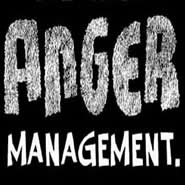How To Deal With Unwanted Angry Thoughts?
We beat ourselves up wondering – why am I always thinking negative – not realizing that this is also a angry thought. This article is all about how to escape negative thinking for good and start living life more sanely.
First of all it’s important to distinguish between practical thinking and stinking thinking. The former is an essential necessity of daily living with the latter is just a waste of vital energy.
Practical thinking – it involves predicting the future based on our past learning and taking necessary action to fulfill certain goals. There are times when we have to be cautious and on the alert to safe guard our life, like when crossing the road or while driving. It’s also important to have some means of generating income to lead a certain lifestyle. All of this falls under practical “daily living” thinking.
So What’s Angry Thinking?
![]() Any form of obsessive thinking which serves no practical value, other than to make us suffer, will constitute stinking thinking. Some examples of angry thinking patterns are as below
Any form of obsessive thinking which serves no practical value, other than to make us suffer, will constitute stinking thinking. Some examples of angry thinking patterns are as below
- Worrying about being fired from your job without any concrete reason to support such a thought.
- Frantically consumed by the thought of being cheated on by your girlfriend or wife or husband without any proof to support such a belief.
- Thinking about all the things that could go wrong with you at the office party
- Worrying about what will happen to you after retirement, 10 years before you retire.
You know when you are thinking angry because you feel it in your body. There will be a sense of restlessness, unease and sometimes a nauseating constriction felt through out your body when you are thinking obsessive angry thoughts.
Worrying obsessively is a form of stinking thinking. Resenting the past, or feeling guilty about the things you did back then, is another form stinking thinking.
Quite simply, when your negativity is projected in the future it’s called worrying and when it’s pointed towards the past it’s usually guilt or resentment.
There are all sorts of anger-provoking situations, more anger management information that might be useful in working through anger-related issues. Some people become mad or angry when they are frustrated, when something doesn’t work out the way they planned or they failed to succeed after giving their all, circumstances like these may cause a person to become frustrated. This frustration may lead to anger which can then spin off into a whole list of negative consequences.
[button link=”https://nuhopecare.com/court-ordered-programs/free-anger-classes/” type=”big” color=”teal”] Free Anger Quiz!![/button]
Unwanted Angry Thoughts?
